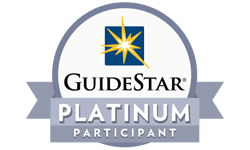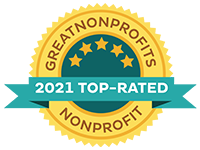Success is more about effort than intelligence
Excelling in every challenge, task, or assignment that comes your way is not something that relies entirely on your IQ. In fact, when it comes to getting 100% on your next school project or nailing a job interview, efficiency and work ethic are extremely important. With the right techniques, you can achieve above and beyond in anything you do, regardless of how intelligent you are. Success in every project you undertake is guaranteed when you understand your expectations, use your resources, plan ahead, and efficiently go the extra mile.
When assigned a task, the first thing you should do is analyze what is expected of you. For students, this means understanding what subject area an assignment covers, what requirements exist, and how the assignment will assess you as a student (if you are independent, collaborative, initiative, etc). This information can be found by looking through rubrics, assignment pages, and other instructional materials for your state and grade, as well as clarifying with your teacher. For employees, this means understanding what the purpose or benefit of a specific task is and how you can display your personal value through the responsibility. Reading through handbooks and clarifying with experienced coworkers and supervisors are great practices if your goal is to progress professionally. Understanding what is expected of you and the specifics of every project will not only ensure that you complete it properly, but also shows that you can work well under instruction.
On the other hand, accessing the resources available to you is equally important in striving for excellence. Resources are extra sources of information, such as books or online media, that can optimize your results in any given task. For example, when you need to complete a written report, effectively accessing your resources can take form in using writing guides or getting your work proofread. These tools are easily accessible, and help perfect your efforts to ensure success, as well as improve your own learning. Even more, when these resources are handed to you, like employee handbooks or reading lists, effectively utilizing them will earn you a few brownie points.
While some people may work well under pressure, it is always a good idea to use effective time management and planning skills when tackling a daunting or important task. It’s essential to schedule regular time to work on your project and break down the big assignment into manageable daily tasks. Prioritizing your time is necessary as well: if the task is very important, you need to make the effort to spend more time on it and start working on it earlier. Brainstorming or planning your ideas, expectations, and goals relative to the assignment can also help you get started in the right direction. Sometimes doing a “brain dump” of everything you’re thinking of in regards to the project will help you identify your background knowledge or perspective and clear your mind to help you focus.
The most important strategy to succeed in educational or work activities is efficiently going the extra mile. Supervisors and teachers have seen the bare minimum before; they want to be surprised and impressed with your completed work. Yet going above and beyond is not just about doing something that was not asked of you: it’s about showing your supervisor or teacher that you took the opportunity to extend your learning, experience, or effect. This is why, when thinking of ways to go the extra mile, it’s important that you review your expectations and resources again. You want to find an additional task that connects to the purpose of your assignment but displays extra information. For example, if a student was asked to write a book report, they could exceed expectation by also writing an alternate ending to the text to show a complete understanding of the novel. If an employee was asked to lead a staff meeting, they could put in extra effort by incorporating an interactive presentation.
So if you ever think that you can’t get straight A’s in school, or excel in your dream job, think again. The four strategies listed above— clarifying expectations, accessing resources, planning ahead, and doing more than expected—are the key to learning more, impressing your teachers or supervisors, and generally succeeding in academic or work environments. Even if you think of yourself as “smart” or not, it’s important to know that these techniques can be easily utilized by anyone, and in any situation, to work towards success.










